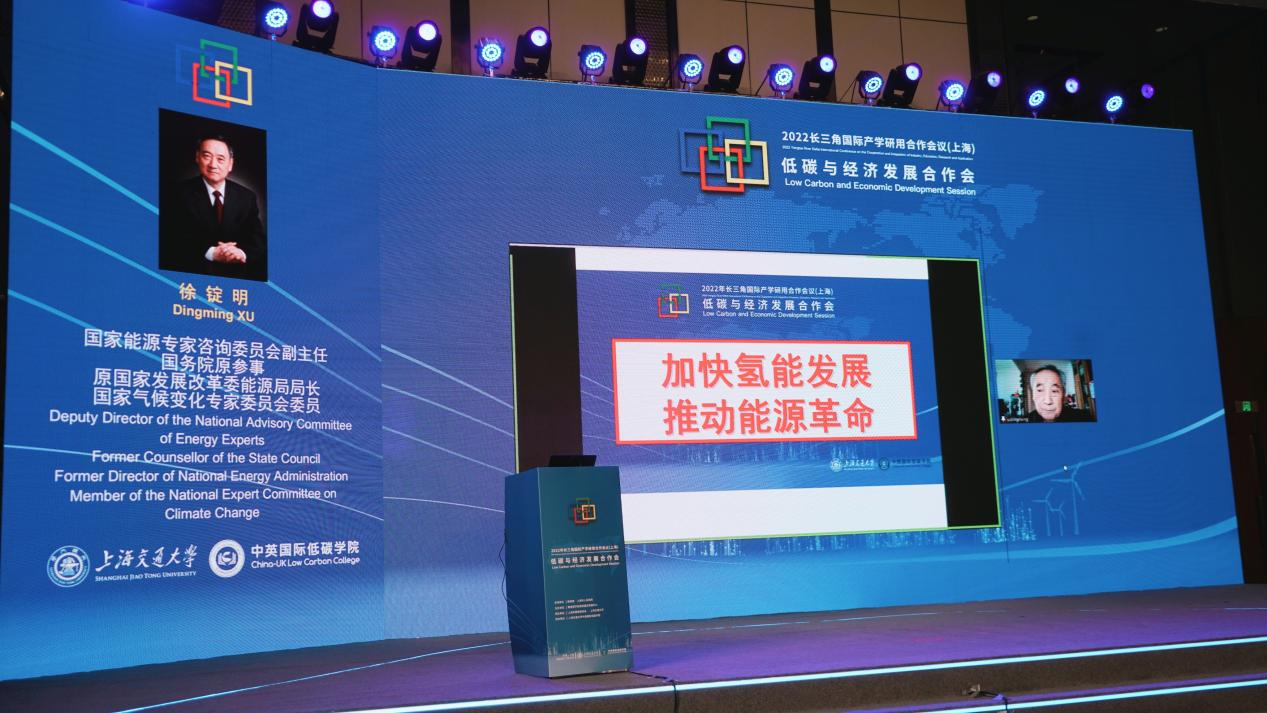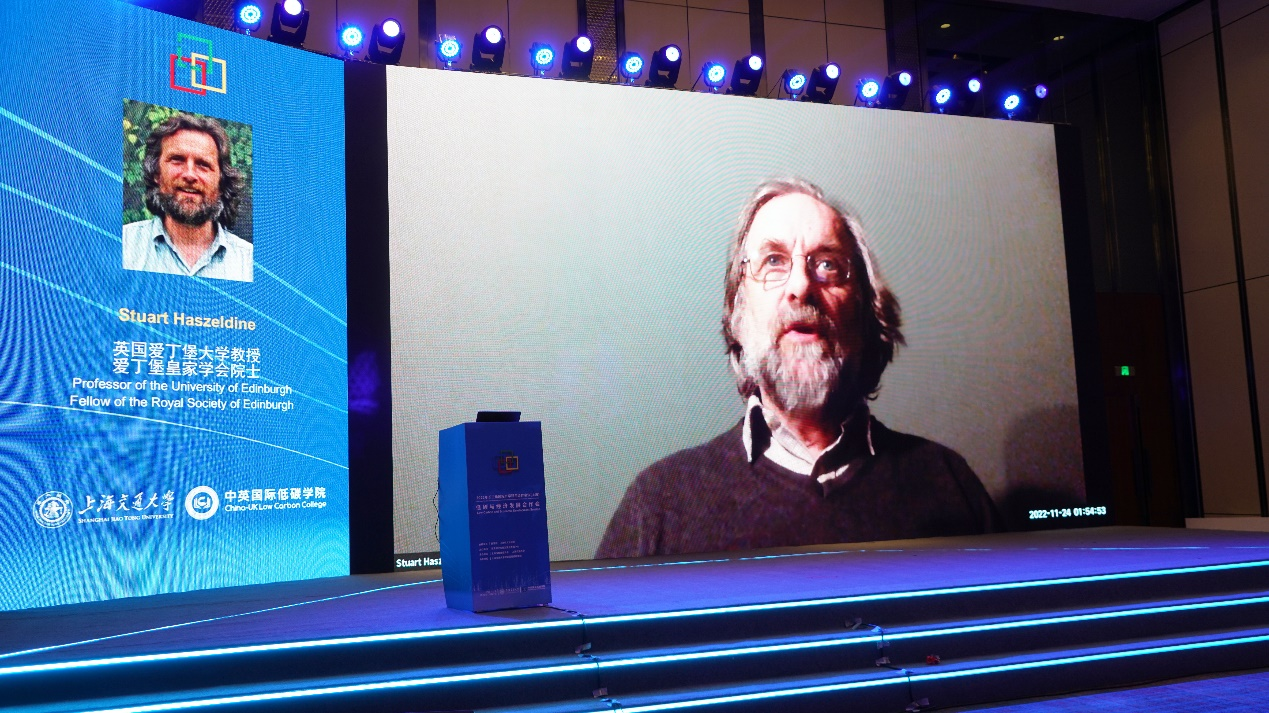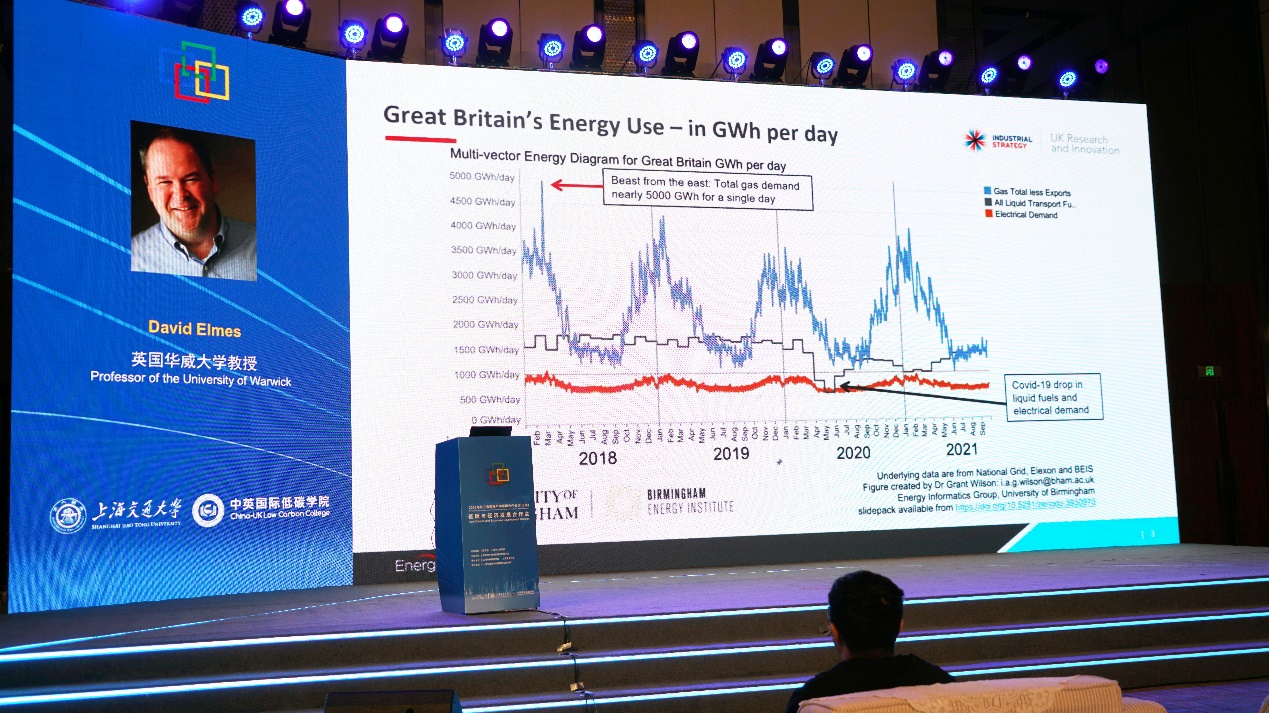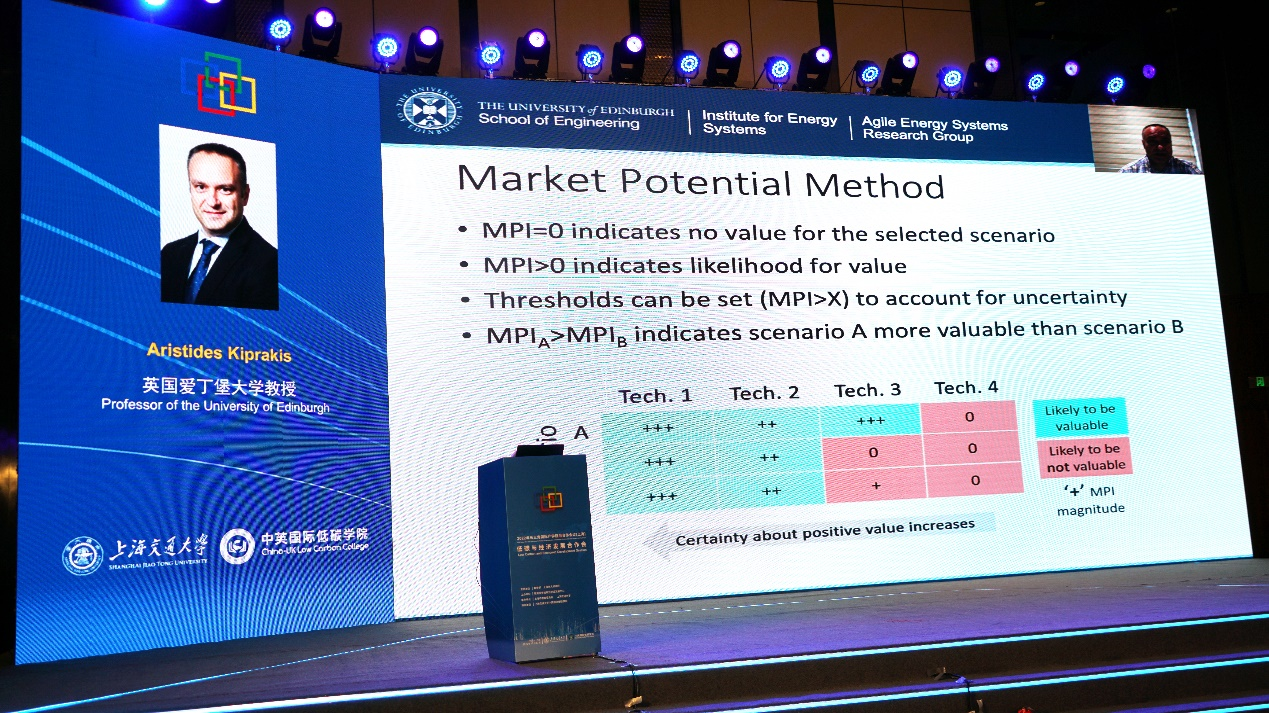On 27th November 2022, the 2022 Yangtze River Delta International Conference on the Cooperation and Integration of Industry, Education, Research and Application, a conference supported by the Ministry of Education of China and jointly held by provinces of Yangtze River Delta, took place in Shanghai. In the afternoon, the Low Carbon and Economic Development Session was held by Shanghai Jiao Tong University (SJTU) and organized by the SJTU China-UK Low Carbon College (LCC), with over 700 on-site and online audience. The conference was chaired by the Dean of LCC, Changying Zhao.


Kaiyu Xu, Director of Science and Technology Division of Shanghai Municipal Education Commission gave a welcome speech to the guests and scholars and expressed congratulations to the successful opening of this conference, as it presented a platform for scholars to share their research findings towards a carbon neutral future.

Peng Luo, Director of International Affairs Division of SJTU, said he hoped to see more localized carbon neutral development, and would spare no effort to make SJTU’s contributions to this goal.

Dingming Xu, Deputy Director of the National Advisory Committee of Energy Experts delivered a keynote speech on “Accelerating the Development of Hydrogen Energy to Drive Energy Revolution”, pointing out that hydrogen energy is an important component of the future zero-carbon energy system, and that promoting hydrogen energy requires comprehensive consideration of all aspects.

Stuart Haszeldine, Professor of the University of Edinburgh, delivered a talk on “Re-Storing Carbon with Nature and Geology, Carbon Offsets or Removals” and demonstrated multiple approaches of natural and industrial carbon capture and storage and methodology of the pricing of each approach.

Changying Zhao, Chair Professor of SJTU and Dean of LCC, gave a talk on “China’s Energy Transition for Carbon Neutrality: Path Exploration and Technology Outlook”, which analyzed the opportunities and challenges faced by China's current energy industry and introduced the three major research areas - non-fossil energy, energy storage and energy internet.

David Elmes, Professor of the University of Warwick, pointed out in his talk titled “District Heating in Smart Local Energy System” that fossil fuels are still the major source of heating, which in the future could be transformed and integrated into the smart building energy system as it reduces the heating demand.

Aristides Kiprakis, Professor of the University of Edinburgh, gave a talk on “Improving the Value of Energy Storage in Electricity Systems” and pointed out that energy storage system is a good solution for integrating renewable energy into the grid, and that energy storage can significantly increase the flexibility of the grid.
The success of the Low Carbon and Economic Development Session will have a profound and lasting impact on carbon neutrality research, industrial development, public consensus and international cooperation.
LCC Delegation Visits the UK and France
2025-12-16